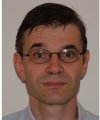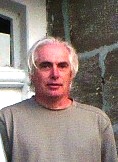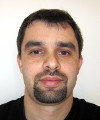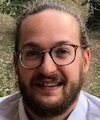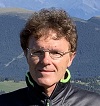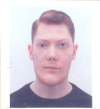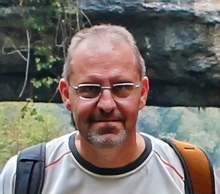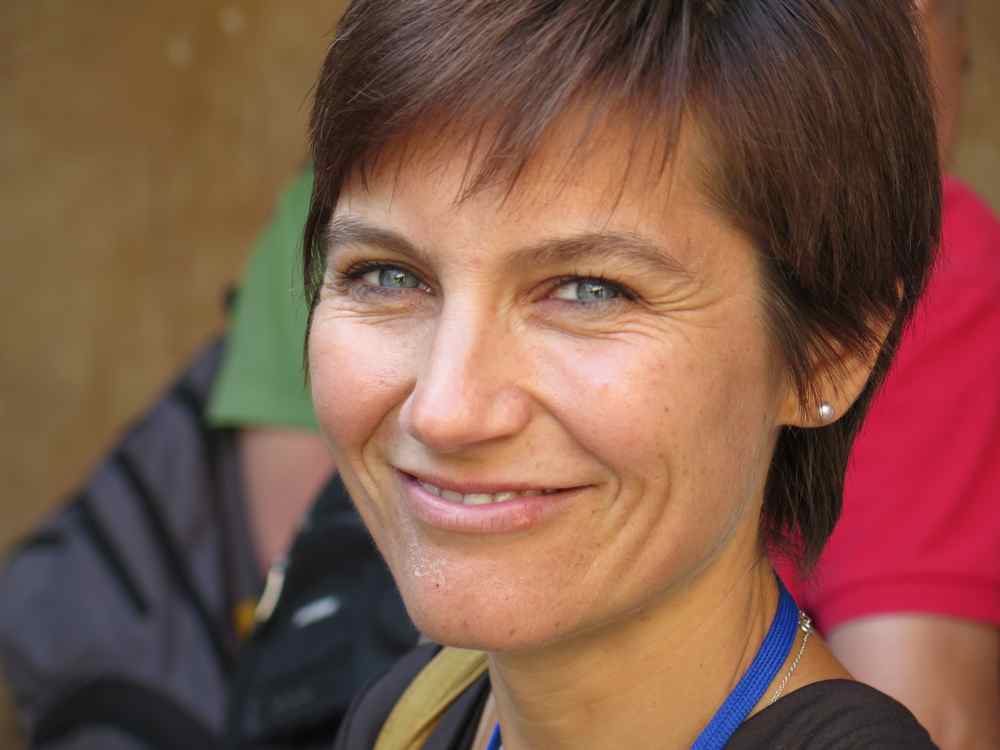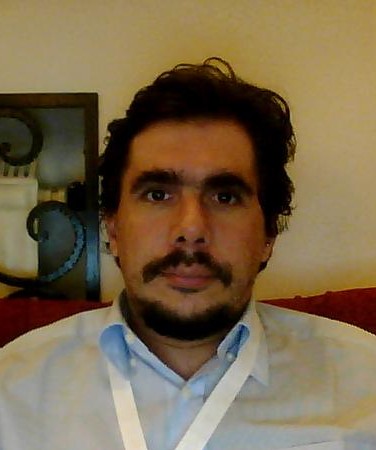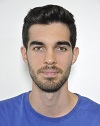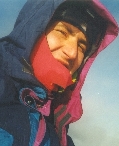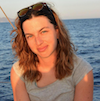Studiare
In questa sezione è possibile reperire le informazioni riguardanti l'organizzazione pratica del corso, lo svolgimento delle attività didattiche, le opportunità formative e i contatti utili durante tutto il percorso di studi, fino al conseguimento del titolo finale.
Calendario accademico
Il calendario accademico riporta le scadenze, gli adempimenti e i periodi rilevanti per la componente studentesca, personale docente e personale dell'Università. Sono inoltre indicate le festività e le chiusure ufficiali dell'Ateneo.
L’anno accademico inizia il 1° ottobre e termina il 30 settembre dell'anno successivo.
Calendario didattico
Il calendario didattico indica i periodi di svolgimento delle attività formative, di sessioni d'esami, di laurea e di chiusura per le festività.
| Periodo | Dal | Al |
|---|---|---|
| I semestre | 1-ott-2020 | 29-gen-2021 |
| II semestre | 1-mar-2021 | 11-giu-2021 |
| Sessione | Dal | Al |
|---|---|---|
| Sessione invernale d'esame | 1-feb-2021 | 26-feb-2021 |
| Sessione estiva d'esame | 14-giu-2021 | 30-lug-2021 |
| Sessione autunnale d'esame | 1-set-2021 | 30-set-2021 |
| Sessione | Dal | Al |
|---|---|---|
| Sessione di laurea estiva | 22-lug-2021 | 22-lug-2021 |
| Sessione di laurea autunnale | 14-ott-2021 | 14-ott-2021 |
| Sessione di laurea invernale | 16-mar-2022 | 16-mar-2022 |
| Periodo | Dal | Al |
|---|---|---|
| Festa dell'Immacolata | 8-dic-2020 | 8-dic-2020 |
| Vacanze Natalizie | 24-dic-2020 | 3-gen-2021 |
| Vacanze Pasquali | 2-apr-2021 | 5-apr-2021 |
| Festa del Santo Patrono | 21-mag-2021 | 21-mag-2021 |
| Festa della Repubblica | 2-giu-2021 | 2-giu-2021 |
| Vacanze estive | 9-ago-2021 | 15-ago-2021 |
Calendario esami
Gli appelli d'esame sono gestiti dalla Unità Operativa Segreteria Corsi di Studio Scienze e Ingegneria.
Per consultazione e iscrizione agli appelli d'esame visita il sistema ESSE3.
Per problemi inerenti allo smarrimento della password di accesso ai servizi on-line si prega di rivolgersi al supporto informatico della Scuola o al servizio recupero credenziali
Per dubbi o domande leggi le risposte alle domande più frequenti F.A.Q. Iscrizione Esami
Docenti
 vittoria.cozza@univr.it
vittoria.cozza@univr.it
 federicoluigi.dipasquale@univr.it
federicoluigi.dipasquale@univr.it
 rosanna.laking@univr.it
rosanna.laking@univr.it
 davide.mattiolo@univr.it
davide.mattiolo@univr.it

Mazzuoccolo Giuseppe
 giuseppe.mazzuoccolo@univr.it
giuseppe.mazzuoccolo@univr.it
 +39 0458027838
+39 0458027838
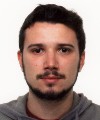
Rapa Alessandro
 alessandro.rapa@univr.it
alessandro.rapa@univr.it
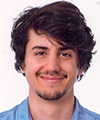
Rubio Y Degrassi Lleonard
 lleonard.rubioydegrassi@univr.it
lleonard.rubioydegrassi@univr.it
Piano Didattico
Il piano didattico è l'elenco degli insegnamenti e delle altre attività formative che devono essere sostenute nel corso della propria carriera universitaria.
Selezionare il piano didattico in base all'anno accademico di iscrizione.
1° Anno
| Insegnamenti | Crediti | TAF | SSD |
|---|
| Insegnamenti | Crediti | TAF | SSD |
|---|
| Insegnamenti | Crediti | TAF | SSD |
|---|
Legenda | Tipo Attività Formativa (TAF)
TAF (Tipologia Attività Formativa) Tutti gli insegnamenti e le attività sono classificate in diversi tipi di attività formativa, indicati da una lettera.
Modern physics (2020/2021)
Codice insegnamento
4S001446
Docente
Coordinatore
Crediti
6
Lingua di erogazione
Inglese
Settore Scientifico Disciplinare (SSD)
FIS/01 - FISICA SPERIMENTALE
Periodo
II semestre dal 1-mar-2021 al 11-giu-2021.
Obiettivi formativi
Scopo del corso è introdurre i concetti fondamentali della Teoria della Relatività Ristretta e della Meccanica Quantistica e loro applicazioni alla Fisica Atomica e Nucleare, finalizzati alla progettazione e allo sviluppo di attività di insegnamento su questi argomenti nella scuola secondaria. Una parte del corso e' dedicata a coprire argomenti di base e avanzati della Termodinamica. Agli studenti del corso si richiedono le conoscenze di base della Fisica Classica riguardanti le leggi di Newton e della gravitazione universale, le leggi dell'elettromagnetismo e le equazioni di Maxwell, la teoria e le proprietà delle onde elettromagnetiche.
Programma
TERMODINAMICA
- principio zero: equilibrio termico e termodinamico; trasformazioni termodinamiche; temperatura empirica
- primo principio: lavoro, calore, energia interna
- secondo principio: enunciato di Kelvin e di Clausius; equivalenza; teorema di Carnot; ciclo di Carnot; temperatura termodinamica assoluta; teorema di Clausius; entropia; e degrado dell’energia
- secondo principio: il punto di vista microscopico; cenni di termodinamica statistica; temperature assolute negative; violazione dell’enunciato di Kelvin
- secondo principio: ordine e disordine
- terzo principio
- gas ideale: trasformazioni isobare, isocore, isoterme, adiabatiche; ciclo di Carnot del gas ideale
MECCANICA QUANTISTICA
- spettro di corpo nero, la costante di Planck, l’effetto fotoelettrico, natura corpuscolare della luce, gli spettri di emissione e assorbimento atomici, l’atomo di Bohr, momento magnetico e momento angolare intrinseco, tavola periodica, natura ondulatoria delle particelle, ipotesi di De Broglie
- cenni di fisica atomica e nucleare
- dualismo onda-corpuscolo, principio di indeterminazione, meccanica ondulatoria
- spin, principio di Pauli
- equazione di Schroedinger, modello atomico a orbitali
TEORIA DELLA RELATIVITA’
- postulati della relativita’ galileiana, addizione delle velocita’
- dati sperimentali sulla velocita’ della luce
- non invarianza delle equazioni di Maxwell per trasformazioni di Galilei
- esperimento di Michelson-Morley
- postulati della relativita’ ristretta
- trasformazioni di Lorentz, addizione delle velocita’
- dilatazione dei tempi, simultaneita’ e causalita’, contrazione delle lunghezze, paradossi spazio-temporali
- dinamica relativistica: quantita’ di moto, energia cinetica, equivalenza massa-energia
- spazio-tempo e quadrivettori
| Autore | Titolo | Casa editrice | Anno | ISBN | Note |
|---|---|---|---|---|---|
| Peter Atkins | Four Laws That Drive the Universe | 978-0199232369 |
Modalità d'esame
La valutazione dell’apprendimento avverrà attraverso una prova orale (in inglese o in italiano a discrezione dello studente) preceduta da una prova scritta (in inglese) comprendente brevi esercizi sugli argomenti trattati nel corso e domande aperte relative agli argomenti trattati anche con riferimento alla impostazione di percorsi didattici.
Gli studenti dovranno dimostrare di:
- aver compreso e saper discutere criticamente concetti e nodi legati ai fenomeni fisici trattati nel corso
- saper utilizzare un linguaggio corretto, appropriato e rigoroso
- saper impostare percorsi didattici sugli argomenti trattati
La modalità d'esame potrebbe subire delle variazioni in funzione
dell'evolversi della situazione coronavirus.
Tipologia di Attività formativa D e F
Le attività formative in ambito D o F comprendono gli insegnamenti impartiti presso l'Università di Verona o periodi di stage/tirocinio professionale.
Nella scelta delle attività di tipo D, gli studenti dovranno tener presente che in sede di approvazione si terrà conto della coerenza delle loro scelte con il progetto formativo del loro piano di studio e dell'adeguatezza delle motivazioni eventualmente fornite.
| anni | Insegnamenti | TAF | Docente |
|---|---|---|---|
| 1° 2° | Algoritmi | D |
Roberto Segala
(Coordinatore)
|
| 1° 2° | Conoscenza scientifica e strategie di apprendimento attivo | F |
Francesca Monti
(Coordinatore)
|
| 1° 2° | Genetica | D |
Massimo Delledonne
(Coordinatore)
|
| 1° 2° | Storia e didattica della geologia | D |
Guido Gonzato
(Coordinatore)
|
| anni | Insegnamenti | TAF | Docente |
|---|---|---|---|
| 1° 2° | Advanced topics in financial engineering | F |
Luca Di Persio
(Coordinatore)
|
| 1° 2° | Algoritmi | D |
Roberto Segala
(Coordinatore)
|
| 1° 2° | Linguaggio programmazione Python | D |
Vittoria Cozza
(Coordinatore)
|
| 1° 2° | Organizzazione aziendale | D |
Giuseppe Favretto
(Coordinatore)
|
| anni | Insegnamenti | TAF | Docente |
|---|---|---|---|
| 1° 2° | ECMI modelling week | F | Non ancora assegnato |
| 1° 2° | ESA Summer of code in space (SOCIS) | F | Non ancora assegnato |
| 1° 2° | Google summer of code (GSOC) | F | Non ancora assegnato |
| 1° 2° | Introduzione all'analisi non standard | F |
Sisto Baldo
|
| 1° 2° | Linguaggio Programmazione C | D |
Pietro Sala
(Coordinatore)
|
| 1° 2° | Linguaggio Programmazione LaTeX | D |
Enrico Gregorio
(Coordinatore)
|
| 1° 2° | Mathematics mini courses | F |
Marco Caliari
(Coordinatore)
|
Prospettive
Avvisi degli insegnamenti e del corso di studio
Per la comunità studentesca
Se sei già iscritta/o a un corso di studio, puoi consultare tutti gli avvisi relativi al tuo corso di studi nella tua area riservata MyUnivr.
In questo portale potrai visualizzare informazioni, risorse e servizi utili che riguardano la tua carriera universitaria (libretto online, gestione della carriera Esse3, corsi e-learning, email istituzionale, modulistica di segreteria, procedure amministrative, ecc.).
Entra in MyUnivr con le tue credenziali GIA: solo così potrai ricevere notifica di tutti gli avvisi dei tuoi docenti e della tua segreteria via mail e a breve anche tramite l'app Univr.
Doppio Titolo
Grazie ad una rete di accordi con Atenei esteri, l’Università di Verona offre percorsi formativi internazionali che consentono l’acquisizione di un doppio titolo di studio. L’ammissione ad un CdS a doppio titolo consente di conseguire contemporaneamente, nel tempo di un normale ciclo di studi (di cui una parte viene svolta all'estero), sia il titolo di studio dell’Università di Verona che il titolo rilasciato dall'Ateneo partner, garantendo di vedere riconosciuto il diploma di laurea in entrambi i Paesi.
L'accesso al doppio titolo (così come l’eventuale sostengo finanziario) è regolato da uno specifico bando, e il numero di posti è limitato.
E' online il bando Erasmus + doppio titolo a.a. 2024/2025
⇒ Pubblicato l'Avviso per la selezione di studenti da ammettere ai percorsi di laurea a doppio titolo dell’Università degli Studi di Verona
Per la presentazione del LA e successivi riconoscimenti dei CFU si rimanda al regolamento sulla mobilità internazionale.
Documenti
| Titolo | Info File |
|---|---|
|
|
pdf, it, 461 KB, 24/11/23 |
|
|
pdf, it, 361 KB, 23/02/24 |
Attività didattiche alternative
Per rendere il percorso di studi più flessibile, è possibile chiedere di sostituire alcuni insegnamenti con altri del medesimo corso di studio in Mathematics all'Università degli Studi di Verona (qualora gli obiettivi formativi degli insegnamenti che si intendono sostituire siano già stati raggiunti nella carriera pregressa), oppure con altri del corso di studio in Mathematics all'Università degli Studi di Trento.Documenti
| Titolo | Info File |
|---|---|
|
|
pdf, it, 167 KB, 27/08/21 |
|
|
pdf, it, 44 KB, 30/08/21 |
|
|
pdf, it, 113 KB, 30/08/21 |
Modalità di frequenza
Come riportato nel regolamento didattico, la frequenza è in generale non obbligatoria, con la sola eccezione di alcune attività laboratoriali. Per queste sarà chiaramente indicato nella scheda del corrispondente insegnamento l'ammontare di ore per cui è richiesta la frequenza obbligatoria.
Gestione carriere
Area riservata studenti
Prova Finale
Scadenziari e adempimenti amministrativi
Per gli scadenziari, gli adempimenti amministrativi e gli avvisi sulle sessioni di laurea, si rimanda al servizio Sessioni di laurea - Scienze e Ingegneria.
Necessità di attivare un tirocinio per tesi
Per stage finalizzati alla stesura della tesi di laurea, non è sempre necessaria l'attivazione di un tirocinio tramite l'Ufficio Stage. Per maggiori informazioni, consultare il documento dedicato, che si trova nella sezione "Documenti" del servizio dedicato agli stage e ai tirocini.
Regolamento della prova finale
La prova finale prevede la preparazione sotto la guida di un relatore di un elaborato scritto (tesi), che può consistere nella trattazione di un argomento teorico, o nella risoluzione di un problema specifico, o nella descrizione di un progetto di lavoro, o di un'esperienza fatta in un'azienda, in un laboratorio, in una scuola ecc. La tesi, preferibilmente redatta in TeX/LaTeX/AMSTeX e usando il pacchetto LaTeX Frontespizio, può essere inviata preliminarmente in formato elettronico ai membri della Commissione Valutazione Tesi e dovrà essere presentata, in duplice copia, al momento della discussione. La tesi potrà essere redatta anche in lingua inglese.
La discussione della tesi, che dovrà durare indicativamente tra i venti e i trenta minuti, avverrà davanti ad una Commissione Valutazione Tesi nominata dal Presidente del collegio Didattico di Matematica. ll Presidente della commissione è il professore di ruolo di più alto grado accademico. La Commissione Valutazione Tesi è composta da almeno tre Docenti tra cui possibilmente il Relatore. Ogni Commissione Valutazione Tesi potrà valutare più studenti in funzione del contenuto del lavoro da essi presentato. La discussione della tesi viene effettuata durante i trenta giorni precedenti la data stabilita per la sessione di Laurea, ne viene data adeguata comunicazione ed è aperta al pubblico.
La Commissione Valutazione Tesi attribuisce ad ogni studente un punteggio della prova finale che va da zero a cinque. La valutazione della prova finale si articola in maniera tale da tenere conto delle conoscenze acquisite dallo studente durante il lavoro di tesi, del loro grado di comprensione, dell'autonomia di giudizio, delle capacità dimostrate dallo studente di applicare dette conoscenze e di comunicare efficacemente e compiutamente l'insieme degli esiti del lavoro ed i principali risultati ottenuti (si vedano la Tabella 1 per tesi di laurea triennale e la Tabella 2 per tesi di laurea magistrale, in calce al presente regolamento). Il Presidente della Commissione Valutazione Tesi invia una relazione, firmata da tutti i componenti della Commissione, al Presidente della Commissione di Esame Finale indicando per ogni studente il punteggio attribuito per l'esame finale ed un eventuale breve giudizio.
La Commissione di Esame Finale, unica per tutti gli studenti di quella sessione di Laurea, viene nominata dal Presidente del Collegio Didattico di Matematica. Il Presidente della commissione è il professore di ruolo di più alto grado accademico. La Commissione di Esame Finale deve essere composta da un Presidente e almeno da altri quattro Commissari scelti tra i docenti dell'Ateneo.
La Commissione di Esame Finale determina per ogni studente il punteggio finale sommando la media, pesata rispetto ai relativi CFU, espressa in centodecimi, dei voti degli esami del piano di studi, escluse le attività in sovrannumero, con il punteggio della prova finale. Aggiunge inoltre il punteggio attribuito alla carriera dello studente, da zero a due (si veda la Tabella 3, in calce al presente regolamento). Il voto finale, espresso in centodecimi, si ottiene arrotondando all'intero più vicino (all'intero superiore, in caso di equidistanza) il punteggio ottenuto, senza eccedere 110 centodecimi e assegnando la lode solo con l'unanimità della Commissione di Esame Finale al candidato che abbia raggiunto i 110 centodecimi dopo l'arrotondamento.
La Commissione di Esame Finale procede alla proclamazione dei nuovi Laureati in Matematica Applicata o Laureati magistrali in Mathematics con una cerimonia pubblica ed ufficiale.
Documenti
| Titolo | Info File |
|---|---|
|
|
pdf, it, 31 KB, 02/11/22 |
|
|
pdf, en, 31 KB, 02/11/22 |
|
|
pdf, it, 171 KB, 20/03/24 |
Elenco delle proposte di tesi e stage
| Proposte di tesi | Area di ricerca |
|---|---|
| Controllo di sistemi multiagente | Calculus of variations and optimal control; optimization - Hamilton-Jacobi theories, including dynamic programming |
| Controllo di sistemi multiagente | Calculus of variations and optimal control; optimization - Manifolds |
| Controllo di sistemi multiagente | Calculus of variations and optimal control; optimization - Optimality conditions |
| Formule di rappresentazione per gradienti generalizzati | Mathematics - Analysis |
| Formule di rappresentazione per gradienti generalizzati | Mathematics - Mathematics |
| Tesi assegnate a studenti di matematica | Argomenti vari |
| Stage | Area di ricerca |
|---|---|
| Proposte di stage per studenti di matematica | Argomenti vari |


